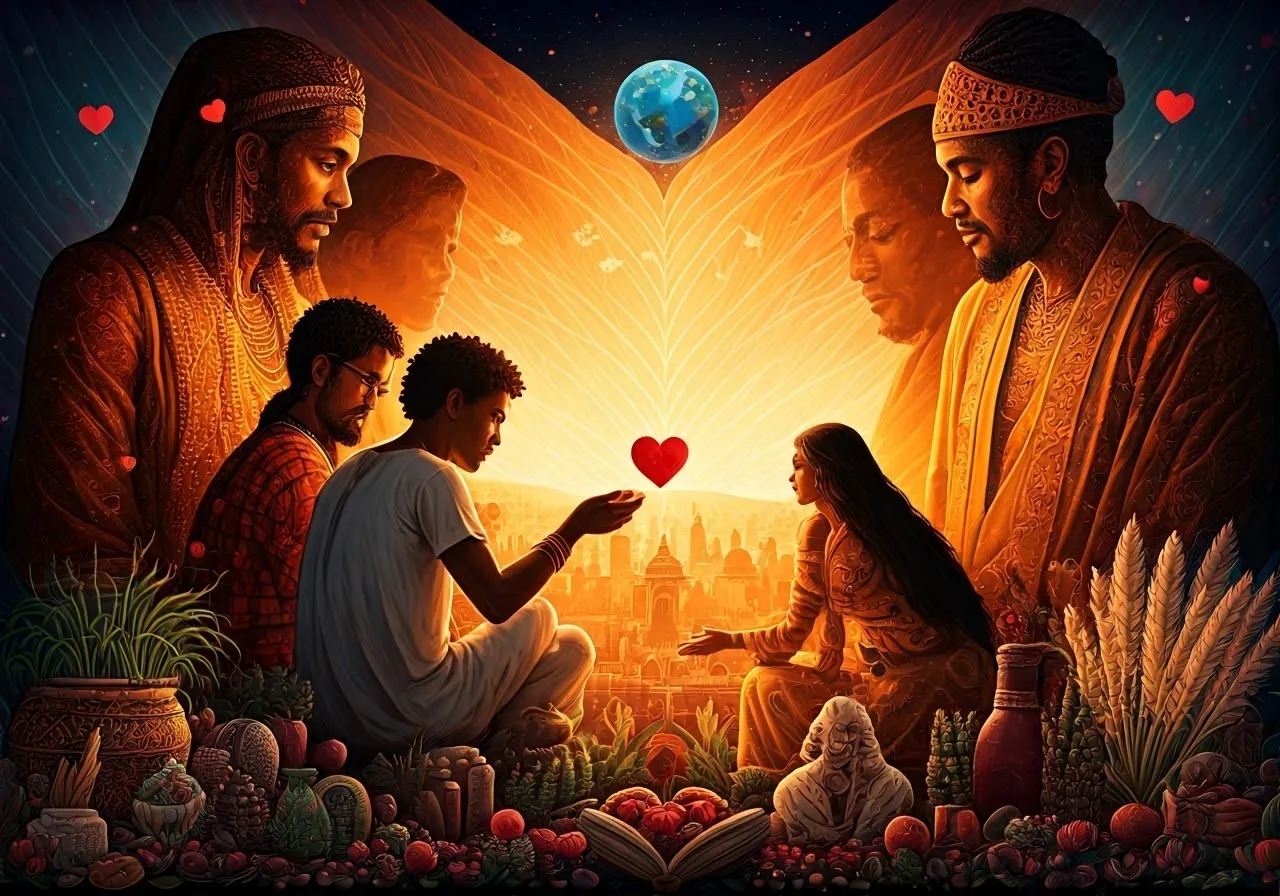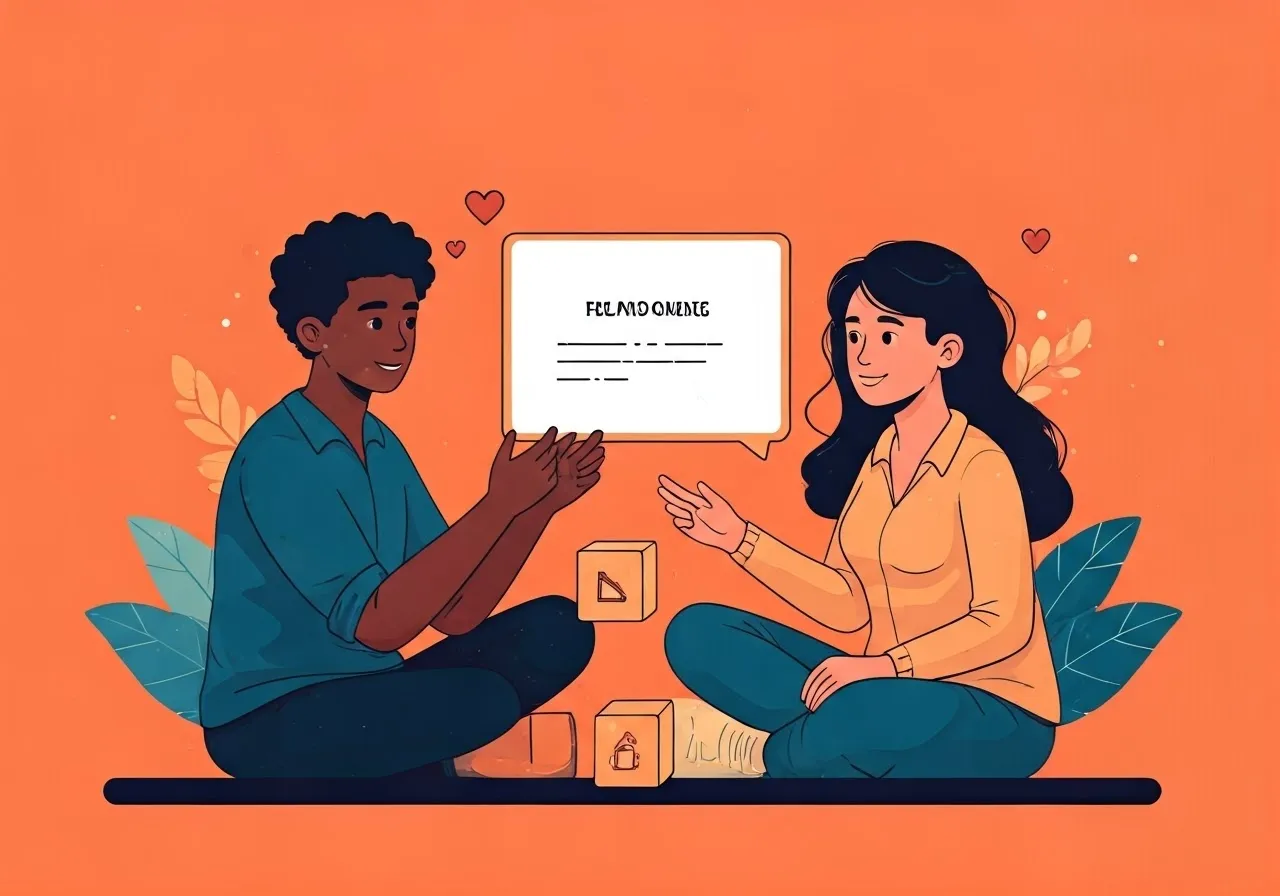Love is a deep and universal idea that has fascinated people for many years. The ancient Greeks thought a lot about it, and in Old English, they called it "lufu", which is related to the Old English lufu term. There are many different forms of love that affect our lives. Whether it is the love of God or the close bond with a romantic partner, knowing these different aspects helps us build strong connections with others.

Love comes in many forms. It is very important to our human experience. Love drives how we connect with others. It shapes what we believe and affects our health. But what is love? How do we grow it in our relationships?
To understand love better, we must see that it has many sides. Love is not just a short-term feeling. It is a mix of biology, mind, and social life.
Love is shown in many different ways in different contexts across cultures around the world. In ancient Greece, people had various words for love. For example, "eros" meant passionate love, while "agape" meant selfless love. This shows us that love connects people in many different ways.
The medieval thinker Thomas Aquinas, who learned from Aristotle, saw love as a rational desire for the good of the person we care about. He said that "true love" is about being committed to another person's happiness, more than just feeling good in a moment.
When we look at the history and culture of love, we really start to see its different layers. Understanding these different views helps us see how people all over the world feel and show love in unique ways.
Just like love has various forms, relationships also change as time goes on. The initial spark of sexual attraction often comes from biological factors like sexual reproduction. This spark may grow into a deeper and more caring love as the relationship grows.
Love can also feel different depending on the situation. The love between family members is based on shared history and unconditional acceptance. In contrast, the love between romantic partners is filled with intimacy, passion, and lust, as well as commitment.
Understanding how these changes in love happen is important for facing the ups and downs of long-term relationships. When we recognize that love expresses itself differently over time, we can adjust our expectations and build stronger connections.

Building a strong and happy relationship needs some key things. You should have shared values, respect for each other, and a desire to grow together. Romantic gestures and big statements of love are nice but it’s the daily moments that matter more. Small acts of kindness and talking openly are what really strengthen the connection.
When both partners care about the relationship and work on it together, the journey can still have ups and downs. However, it shows the lasting power of love.
At the core of any good relationship is the key to effective communication. This is the path that leads to true connections. It helps partners share their needs, wishes, and fears. Psychologist Robert Sternberg, who is known for his thoughts on love, shows that intimacy grows when people talk openly and honestly.
However, talking is not the only thing that matters. It's also about really listening, understanding, and showing care. Recognizing that words are just part of communicating is important. Nonverbal signals, like body language and tone, are also crucial in expressing feelings.
When couples see communication as something they do all the time, not just a one-time event, they can better understand each other. This helps build a sense of safety, security, and a strong emotional bond.
Trust and respect are the foundation of strong and lasting relationships. They are like stones that create a solid base. These two elements offer stability and help love grow, even when times get tough.
Trust is similar to "true love," as mentioned in Aquinas's "Summa Theologiae." It means having complete faith in the other person’s character and their good intentions. This trust gives us a feeling of safety. It allows us to open up, knowing that our feelings are valued and safe.
Respect is about recognizing the worth of our partner as an individual. It means appreciating their strengths, accepting their weaknesses, and honoring their views, even if they are different from ours.
While big gestures and flashy shows of affection can be appealing, it is often the little things we do every day that really keep love alive. These small acts, filled with care and thought, remind us of the love and appreciation we share.
A sweet compliment, being there to listen after a tough day, or enjoying a cup of coffee together in the morning all create moments of connection. These small moments build intimacy and a bond that grows deeper over time.
In the TV show "Love," the relationship between Mickey and Gus shows how modern relationships can be complicated. Their journey is often messy and full of surprises. Still, it highlights how small actions can help build attachment and affection between them.
Instead of big, grand gestures, it’s Mickey supporting Gus’s creative work or Gus genuinely trying to understand Mickey’s feelings that strengthen their connection. These simple acts of love show that they truly care for each other and understand each other well.
To make gestures meaningful, focus on your partner's love language. Think about what they like and enjoy showing your feelings in ways that matter to them:
Maintaining closeness and passion in long-term relationships takes effort. It also requires a choice to focus on the bond you share. Over time, it's easy to settle into routines and forget to appreciate each other.
But couples like Gus and John from "Love" show that your love can stay strong. Both partners need to care for the relationship. Spend quality time together, try new things, and work to keep the romance going. This way, they face the challenges of long-term commitment and build a deep, lasting love.
Think of relationships like gardens. They need care. Invest in your love, enjoy the happy moments, and support each other through tough times. This way, you will enjoy a fulfilling and lasting connection.

Navigating love can be tricky and comes with many challenges. Conflicts, miscommunication, and stress from outside sources can put a strain on even the best relationships. But when couples face these issues with kindness and understanding, they can turn difficult times into chances to grow and connect even more.
Thinking of problems as a normal part of being together helps couples learn better ways to cope. It also helps them improve how they talk to each other. In the end, they may come out of tough situations with a stronger appreciation for the strength of their love.
Conflict is often seen as a bad thing, but it is a normal part of any relationship. Psychologist Robert Sternberg talks about the nature of love. He says that dealing with disagreements in a good way is important for keeping healthy relationships.
When facing conflicts, it is helpful to change how we think. Instead of trying to "win" an argument, we should focus on understanding our partner's needs and feelings. This means listening carefully, accepting their feelings, and looking for solutions that help both people.
By building trust and respect, couples can change conflict from something harmful into a chance for growth, understanding, and closeness.
Maintaining a healthy relationship means finding a balance between individual interests and a common goal. It’s easy to get lost in the thrill of new love, but it’s important to remember that everyone has their own hopes and dreams.
In today’s world, many people think two people should become one. However, it is vital to keep individual identities separate. Just like early Christians valued group worship along with personal reflection, couples today can be happy by following their own paths while still being close.
Support each other’s growth, cheer for each other’s successes, and give room for personal goals. Even while living together, this balance of being your own person and being a partner creates a strong and happy relationship. It lets love grow while allowing room for personal happiness.
The key to a strong and healthy relationship is self-love. This means believing in our own value and accepting both our strengths and weaknesses. When we truly accept ourselves, we can be real in our connections with others.
By fostering a kind and loving relationship with ourselves, we can positively affect those around us. This builds better interactions and helps improve their lives too.
Imagine Thomas. He is a character struggling with self-doubt while trying to find love in the City of Lights. His story takes place in Paris, a place full of romance. It reminds us of a simple truth: we cannot help others if we do not help ourselves first. Without self-love, it’s hard to have a good relationship.
Self-love does not mean being vain or selfish. It means knowing our value and treating ourselves with kindness and respect. We should treat ourselves the way we treat those we love. It’s about accepting our flaws, celebrating our successes, and forgiving ourselves for past errors.
When we learn to love ourselves, we stop needing other people's approval. This helps us be genuine, leading to stronger connections in our relationships. We can be better partners, friends, and family members. By loving ourselves, we make our lives and the lives of those we care about much richer.
As Aristotle said, "Knowing yourself is the beginning of all wisdom." Understanding ourselves is the first step of self-care. This is important for healthy relationships.
Self-care means doing things that help our bodies, minds, and spirits. Activities that make us happy, lower our stress, and bring us peace help us be our best in our relationships.
When we focus on self-care, we refill our energy and emotional strength. This helps us deal with our relationships with more patience and kindness. It’s important to remember that taking care of ourselves is not selfish. It helps keep our relationships strong and lasting.
Love is usually seen as a close bond between people, but it grows better in a supportive community. Being around those who lift us up, inspire us, and help us can change how we manage the ups and downs of relationships.
We can reach out to trusted friends and family for advice, talk to mentors or therapists, or join support groups. Building a circle of love and support gives us important tools to help relationships grow.
The saying "it takes a village" is very true when we talk about love. Social connections are often ignored in our self-focused world, yet they are vital for our personal health and the health of our relationships.
People are naturally social. We need connection and a sense of belonging. Strong friendships give us a community, help us feel supported, and protect us from stress. They also help us bounce back during tough times.
When couples have a group of trusted friends and family for advice and support, they can face the ups and downs of relationships more easily. It’s important to remember that creating a solid base for love means reaching out for help and guidance from the people around us.
For couples in Houston, Texas, seeking additional support for their relationship, a wealth of community resources are available:

These organizations provide safe and inclusive spaces for couples to address challenges, improve communication, and strengthen their bond.
Remember, seeking support is a sign of strength, not weakness. By leveraging community resources, couples demonstrate a commitment to nurturing their relationship and investing in its long-term health.
In conclusion, building relationships takes work, understanding, and small acts of love every day. Good communication, trust, and respect are essential for a strong bond. Also, loving yourself helps keep the relationship healthy. Facing challenges with kindness and balancing your own needs with togetherness is important for lasting connections. Having a supportive community around you can help. It offers resources and support for couples. Remember, love can be reignited, problems can be solved, and relationships can grow with care and commitment. Embrace love in every part of your life for a strong and caring connection.
Small actions, like a nice hug, listening to someone, or giving a kind compliment, show affection. When you include these acts of love in your everyday life, you strengthen your attachment to others. This helps to create a more loving and supportive atmosphere.
A good relationship grows with open talks, trust, and respect. Partners can share their needs freely. They value what each other thinks. They also work together to solve problems.
Maintaining your own personality in a relationship takes careful work. It is important to love yourself and follow your interests. This helps both partners grow individually. At the same time, it builds a loving and supportive bond between them.
It's possible to bring back love with effort, honesty, and the desire to reconnect. Couples can find the spark that first brought them together by focusing on intimacy, talking openly, and sharing experiences.
Houston has many resources for couples who need help with their relationships. Places like The Relationship Institute, Houston Marriage Institute, and The Montrose Center offer counseling, workshops, and groups. These resources aim to support healthy connections.
Communication is very important for solving conflicts. When couples disagree, they should use kindness, listen carefully, and truly try to understand each other’s views. This way, they can find a solution that brings them closer together.
Stay informed about the latest research in psychology.
.png)
Explore how Internal Family Systems (IFS) therapy heals trauma and restores self-leadership.
.png)
Explore how Internal Family Systems (IFS) therapy heals trauma, anxiety, and inner conflict.
.png)
A practical guide to recognizing, preventing, and healing teacher burnout in Houston schools.